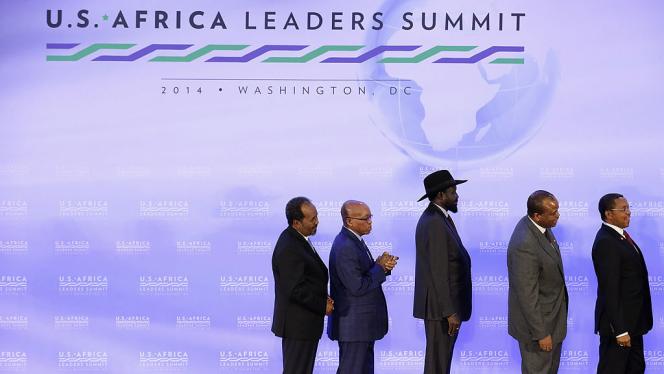Thursday 21 November 2024
The Horn has entered a post-Westphalian era

Somalia and Ethiopia no longer function like other sovereign states in the international system, and this has become a semi-permanent reality
“No one has ever explained how to read maps, you see, and I have difficulty deciphering all the messages” – Nuruddin Farah, Maps
In 2009, then UN secretary general, Kofi Annan wrote a piece arguing that the challenges the world faces can no longer be resolved by lone nation-states irrespective of how powerful they are. In the piece he coined the now hackneyed phrase “problems without passports”, urging countries worldwide to recognise that, more than ever before, the destinies of all nations are interconnected, necessitating a paradigm shift in our thinking. In this new world he wrote, “all of us live simultaneously in our own communities and in the world at large,” adding that whether it was pollution, or organised crime, the proliferation of deadly weapons or subversive ideas, our problems “show little regard for the niceties of borders.”
While some writers contend that economic and political globalisation have already eroded the once vice-like grip nation-states had over our fates, politicians in the Horn of Africa seem to have embraced Annan’s advice beyond its original intent, operating in what appears to be a post-Westphalian era of statehood. Whether it is the clan becoming the foundational political unit replacing the government of Somalia, or Ethiopia asserting an inherent right to access the resources of its neighbours and bargaining with those who want to use its resources, traditional rules of statecraft have been quietly swept away across the region with interesting implications.
It is worth defining what a Westphalian nation-state is first in order to demonstrate how east Africa’s polities have diverged from it. Academics Harald Bauder and Rebecca Mueller give the following theoretical outline: “It permits the state – which can be represented by a king or queen, a dictator, or a democratically elected government – to claim control over the affairs within its territorial boundaries without the interference by other states... It also entitles the state to manage its external affairs as long as the sovereignty of other states is respected.”
In the Horn of Africa, the way state’s derive legitimacy justifying their existence differs greatly but in the Westphalian system polities are considered the “supreme political authority” within a designated territory recognised (usually) by their peers. Somalia relies on a political settlement among parts of its elite which represent its multitude of clans. In Eritrea, the state derives its power from the personage of Isaias Afwerki and his credentials as a leader of the independence struggle. Abiy Ahmed combines personal charisma, with a mandate he obtained from part of the Ethiopian public in 2021. And though Djibouti periodically holds formal elections, the administration of Ismail Omar Guelleh relies more on its ability to extract rent from its international partners to use the country’s location to fund and bolster his state. As the Economist recently put it: “In economic terms it’s a port with a state attached, which runs a lucrative sideline in military real-estate.”
Somalia relies on a political settlement among parts of its elite which represent its multitude of clans. In Eritrea, the state derives its power from the personage of Isaias Afwerki and his credentials as a leader of the independence struggle. Abiy Ahmed combines personal charisma, with a mandate he obtained from part of the Ethiopian public in 2021.
Despite the huge differences in regime type however, the formal existence of these governments as members of the international system belies the way power is brokered and executed across the Horn and how that impacts the character of the way states relate to each other. Rashid Abdi, a seasoned regional analyst based in Nairobi remarked on the impact of the memorandum of understanding signed earlier this year between Somaliland and Ethiopia when he explained that “three competing ideas of sovereignty” were driving the crisis triggered by it: “Somalia’s based on classic Westphalian model (juridical sovereignty); Somaliland's based on functional sovereignty (Rousseau - people & social contract); Ethiopia's post-Westphalian (negotiated sovereignty).”
Abdi’s formula is very helpful, but because he zeroed in on the fiasco around the memorandum, it neglects the multitude of factors we have to consider before drawing conclusions. Somalia, like other countries, does have juridical sovereignty over its territory, but in practice, its sovereignty is a very contested concept. Ethiopia’s more “negotiated” approach speaks more to how leaders view intra-state and inter-state relations, and the memorandum of understanding is a great place to start. Ethiopia challenged international and AU norms when it bypassed the federal government in Mogadishu to secure this deal. The rationale in Addis Ababa was pretty straightforward. Ethiopia is the most populous landlocked country in Africa, and by 2030 it will have a population of 150 million, Abiy told parliament. “A population of 150 million can’t live in a geographic prison,” he continued, making the case for access to neighbouring ports, hinting he’d entertain the prospect of war if he doesn’t get his way peacefully. “Whether you like it or not, [the prison] will blast somewhere.”
Though his tone was incredibly intimidating for regional countries, Abiy has linked his feelings that he’s entitled to port access to Ethiopia’s own willingness to engage with Egypt and Sudan on fair use of the Nile. On some level Abiy’s behaviour suggests that everything is up for grabs. He had his own baptism of fire on this reality with the TPLF who he had to forcefully subdue in a brutal war in the north. In these cases, conventional understandings of sovereignty go out the window, as more pressing priorities like a robust economy for a growing population take precedence. Ethiopian officials have hinted that they may reconsider some aspects of the memorandum with Hargeisa, but the decision was an instance of the de facto liberating itself from the de jure in the region and almost gaining the force of law.
Ethiopian officials have hinted that they may reconsider some aspects of the memorandum with Hargeisa, but the decision was an instance of the de facto liberating itself from the de jure in the region and almost gaining the force of law.
Somaliland itself is interesting for several reasons; it is both a crucial regional player and simultaneously invisible in all regional fora. Hargeisa doesn’t operate as a regular state in the global international system, yet it looms large in the Horn of Africa. Apart from a stable border to its east, it has many of the trappings of a state: a currency, a parliament, an army, it issues passports, and crucially, many Somalilanders feel they belong to a distinct political community.
Somaliland separated from Somalia as the latter collapsed into a protracted civil war in the early 1990s after the Somali National Movement took control of the northern regions and declared independence. There are some parallels in Eritrea’s origin story, however whilst Eritrean People’s Liberation Front succeeded in translating its military gains into formal recognition, Somaliland has been left in limbo—caught between a world that views it as an autonomous region of Somalia and its own self-understanding as a nation-state. As Mueller and Bauder outline the problem: “The overarching problem is that Westphalian sovereignty is mutually exclusive: there cannot be two sovereigns sharing the same fixed and bounded territory.”
Somalia fairs little better. Unlike Somaliland, until recently it lacked many of the trappings of a formal state prompting one author to refer to it as the “graveyard” for state building ventures. It barely had a military or police force and didn’t exercise much control outside its capital. Though Mogadishu scaffolds the institutions built locally by its federal states to project its authority, the federal government has a weak and inconsistent presence throughout its claimed territories. It is only now re-building its capacity to deliver key services to the Somali public, most importantly security. An African Union peacekeeping mission, the longest ever such mission, has been responsible for Somalia’s security since 2007 as it fights al-Shabaab and similarly Ethiopian troops are based in the country on a bilateral basis. This has severely compromised Mogadishu’s authority.
Calls by Somali nationalists for Ethiopia to withdraw its troops due to the memorandum it signed with Hargeisa have been ignored by officials in Mogadishu because of fears of a Taliban style takeover of the capital. In a recent report for the Combating Terrorism Center Paul D. Williams concluded that al-Shabaab would “enjoy a slight military advantage overall” in the event of a departure of AU forces. But even if Somalia did make such a request, it is unlikely to be taken seriously. Where Niger has succeeded in recently ejecting US forces, Somalia struggles to have more pedestrian requests adhered to. Hassan Sheikh Mohamud’s demand that Ethiopia close its consulates in Somaliland and Puntland for allegedly interfering in Somalia’s internal affairs, have been predictably dismissed by Hargeisa, but even by Puntland, demonstrating the limits of Mohamud’s authority.
Somalia’s sovereignty is much closer to the “negotiated” type Rashid Abdi cited, but if pressed you’d have to say Somalia isn’t sovereign at all as sovereignty isn’t a matter of degrees. You either exercise it over your terrain or don’t. The Kenyan decision to establish Jubbaland state is another great example. Kenya wanted an effective buffer to help contain the (in)security spillover from southern Somalia and succeeded despite initial objection from Mogadishu, which more closely resembles a mediaeval city state, with some influence in its hinterland.
Another crucial point that was recently brought back into focus with the new constitution is the relationship between the citizen and state in Somalia. Hassan Sheikh attempted to jettison the 4.5 system and indirect electoral model which stabilised Somalia through an unpopular political settlement. Puntland has rejected the initiative. The old system codified a reality in which clans are sovereign and not the state and Puntland’s rejection of the new constitution and decision to exit the federal system illustrates the ability of these clans to simply withdraw consent and go their own way when expediency dictates.
These developments are of course linked to the weakness of state institutions which have also created a situation in which both Somalia and Ethiopia do not actually control large parts of their territory. This isn’t a revelatory observation, but I suppose my argument is that this has now become a semi-permanent reality which resembles other regions to some degree in terms of the intractable nature of conflicts and the possibly irreversible damage done to state institutions. A quick glance at the Levant, Yemen, Sudan and Libya, you see other examples of undead barely sovereign states which are only taken seriously because of the nature of our international system.









